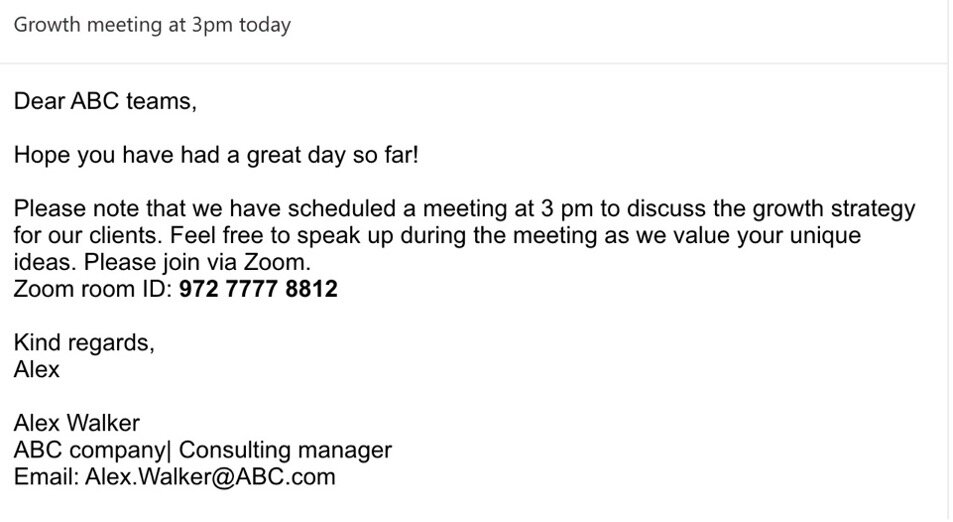Uniqueness and Belonging for Inclusion - An Experiment
Written by Irene Zhou and Kent Zheng, students at UCl.
This experiment was conducted as part of MoreThanNow’s Summer Research Prize. We awarded three student teams a small grant to conduct a research project on the workplace. Our intention was to provide up and coming researchers with a unique opportunity to conduct an experiment outside academia and promote applied behavioural science in the real world.
Over one-fifth of companies put their D&I initiatives on hold over the pandemic; a time when inequality and isolation were on the rise. Over the past 18 months, inclusion challenges have become more complex and more prominent while less action has been taken to stem their negative impact.
To respond effectively, we must first understand the complexity of inclusion. Most organisations believe that inclusion means being treated as an insider. Scientific research says this is not wrong, but it is more than that – while we emphasize the ‘we’ in the workplace, where is the ‘I’ among ‘we’? How should uniqueness be considered when we talk about inclusion? As part of MoreThanNow’s Summer Research Prize, we designed an experiment to find out:
Irene Zhou - final year in BSc Psychology at University College London
Kent Zheng - final year in BSc Social Sciences with Data Science at University College London
The Experiment
To illustrate how belonging and uniqueness impact inclusion in the workplace, we designed a hypothetical online experiment with 280 participants who had working experience. Their task was to imagine themselves as an employee working under hybrid conditions. The participants then received a pre-meeting email from their manager. We randomly divided our participants into four conditions: control, belongingness, uniqueness and combined.
Would a pre-meeting invitation impact belonging? The four conditions:
Control - basic information only, such as meeting time and who would be attending. Just like what employees usually get in real life.
Belongingness -we added a message highlighting that the team cared about their feelings and would provide support if they need. We expected participants’ feelings of belonging to increase after they read this message.
Uniqueness - participants in the ‘uniqueness’ condition were encouraged to express themselves and were told their own values had been appreciated.
Combined condition - finally, for the combined condition, we put the two messages above together.
After participants read the emails, they reported how inclusive they felt on a 5-point scale from strongly disagree to strongly agree.
Finally, participants in each condition read the same short article and they were asked to find as many typos there as possible. The closer they were to the correct answer, the better we deemed their performance. The aim was to investigate how fostering feelings of belonging and uniqueness may affect people’s actual work performance.
The Findings
People who believed their employers treated them as belonging to the team (p = 0.08) or felt their unique values were appreciated (p = 0.07), were more likely to feel included. Interestingly, the uniqueness message produced a slightly better effect. However, when the two messages were given together, people did not report any more inclusion feelings which is the opposite of what we have initially hypothesized. But further research with a larger sample size is required before we jump to a conclusion.
Both messages showed a positive impact on improving employees’ work performance (13% and 5.7% respectively). Uniqueness again outperformed Belongingness, stressing its importance in workplace inclusion. However, people in the combined treatment group showed a 15.8% increase in their work performance which means belongingness and uniqueness seem to have an additive effect for behavioural changes. This seems promising for companies to promote both dimensions in real life.
What’s Next
Our results show that, although belonging is important for workplace inclusion, companies also need to bear in mind the importance of appreciating employees’ own values. Not only it makes people feel more included, but also it enhances their actual work performance – even on a trivial and uninteresting task.
While we call for integrating uniqueness into companies’ cultures, the way to do this does not need to be costly – by simply adding particular messages in daily emails, employees’ inclusion feelings can be effectively increased. Sometimes, small changes also lead to big differences.
However, the interaction between belongingness and uniqueness is still unexplored. While they interfered with each other for inclusion, they produced the most positive effect on work performance. Therefore, we need experiments conducted in real-world working settings to find out how exactly people’s responses may differ towards different messaging. We believe its results will eventually spark a better and more effective D&I strategy in the near future.
The MoreThanNow View
A huge thank you and well done to Irene and Kent for their amazing experiment on the impact of feelings of uniqueness and belonging! Truly fascinating to see how difficult it is to evoke both feelings, and just imagine how these dynamics might play out across an organisation with tens of thousands of employees. It makes us want to experiment and explore the interplay of the concepts even further in the real world.







